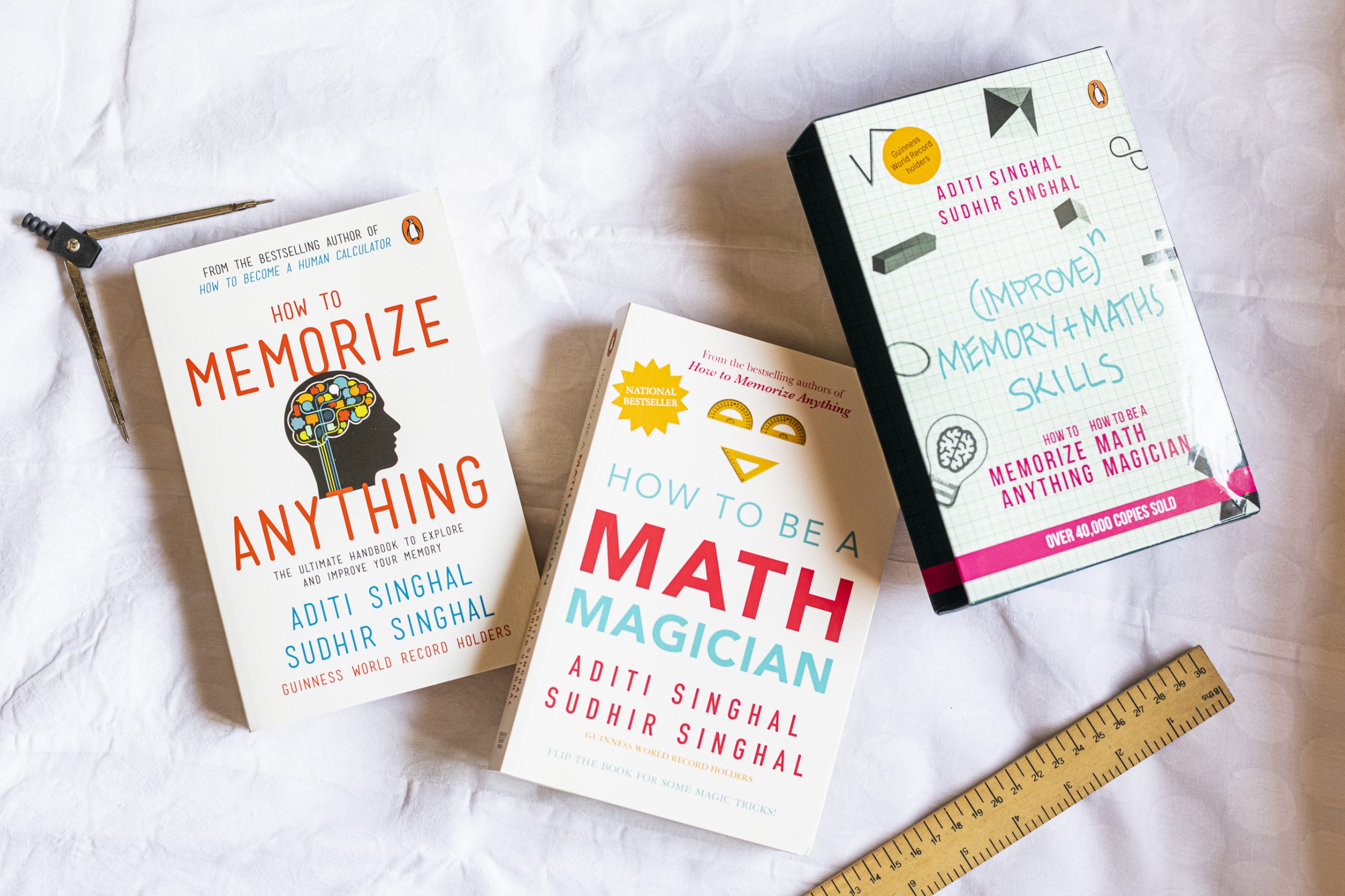
Mathematics is an integral part of our life but many think of it as a boring subject that has to be studied in school or college. In their latest boxset Improve Memory and Maths Skills, Aditi and Sudhir Singhal not only make mathematical principles fun and easy-to-learn but also show a different a side to this subject – a side that can help us improve our concentration skills and increase our attention span. The boxset also includes a manual that will help you memorize anything and explore the immense power of your memory.
Read to know more about how you can tackle the math monster:
Many teachers wonder what magic they can perform to make their kids like the subject. But the fact is it all depends on what you think about the subject and how you present it to students, both children and adults. If a teacher introduces a concept by saying ‘today we are going to start a new topic and it is very difficult. You need to pay attention, otherwise they won’t understand’, those students who find maths difficult automatically switch off, thinking they won’t be able to understand today’s topic. And the students who like the subject also tend to get a little stressed, which is not an ideal mindset for establishing a solid foundation. Instead, if a topic is introduced by saying, ‘Today we are going to learn something very interesting, which I feel you all will enjoy doing,’ and some activity or storytelling accompanies it, then everyone can get involved.
During interaction with students and teachers over the years, we[Aditi and Sudhir Singhal] have realized that whether one fears maths or loves it depends on how well a person understands it. If someone scores well in maths, they start liking it. But if they give wrong answers, they develop a fear of the subject, believing that maths is difficult.
The main factors that contribute to this fear are:
- Clarity of concepts –When a concept is not clear, the child or adult makes mistakes repeatedly, losing confidence and eventually giving up.
- Lack of practice – If someone understands the concept but doesn’t practice it enough, then he/she is not going to retain it for a longer time. Through practice, one is able to understand the patterns involved in the procedure and develops strong pathways in brain which are required to accomplish a particular task.
- Wrong beliefs and messages – Every time a child hears a parent, older sibling, grandparent saying ‘Maths is very difficult’, it makes them think if their elders feared the subject, then it must indeed be very difficult to master, feeding their fear of the subject.
- Not able to relate it with daily life situations – Most students are unclear about the significance of the topics covered during their maths class. Often, they do not see a connection between the topics taught and real-world problems.
To remove the fear of maths, we need to shift our focus from remembering procedures or formulae to understanding them with proper reasoning. First of all, maths should not be treated as just a subject you need to study to get marks in exams. Rather, the emphasis should be on knowing the beauty and importance of maths in daily life. In the present education system, upto eight standard, maths curriculum is focused on calculation skills involving mainly long procedures and formulae. That’s why, with time, students start losing interest in it as they think calculations can easily be done using calculators and mobiles. The remedy for this is for school-level maths to be more related to day-to-day situations. The emphasis should be more on developing mathematical thinking and problem solving skills of a child rather than just working on calculations. Apart from teaching the procedures to solve a particular problem, understanding of why we are using that procedure should also be taught. In short, we need to add the why along with the how to solve a given task or problem.
Students can improve their maths skills by practicing the following strategies:
- Solve challenging puzzles, playing Sudoku, or playing chess. This will help exercise the brain and develop thinking skills.
- Practice maths regularly, doing at least 3 questions daily.
- Instead of using calculators, try to do calculations mentally.
- Don’t hesitate to ask questions.
- Use Vedic math to make your calculations fast and easy.
- Try to relate maths problem with day-to-day situations.
Aditi Singhal is an international memory trainer, author, motivational speaker, counsellor and Vedic Math expert. Sudhir Singhal is a dynamic trainer, author, motivational speaker and counsellor. Both of them hold the Guinness World Record for conducting the largest mathematics class. Their latest boxset Improve Memory and Maths Skills contains the best tips and tricks and is meant for all age-groups students, teachers, and parents. Guaranteed to improve your mathematics and memory skills, these books are must-reads for competitive exams, maths enthusiasts and puzzle aficionados.
Get cracking the boards season by getting your hands on this boxset.









